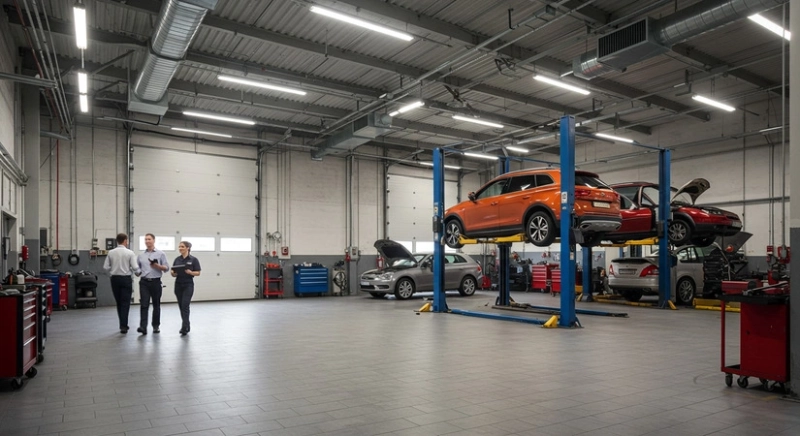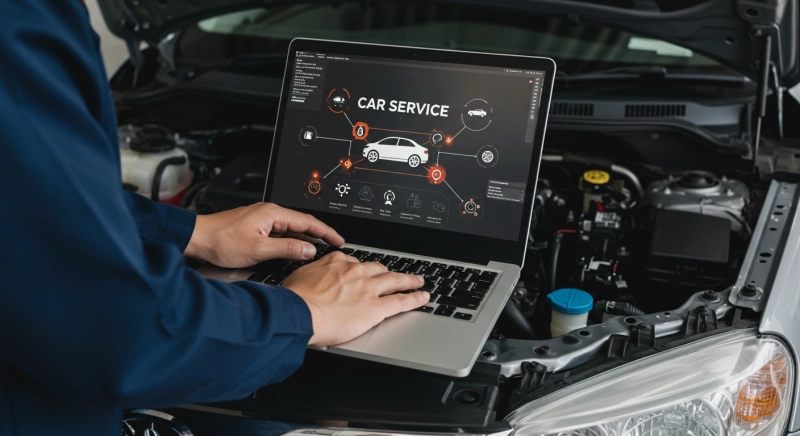
- What is Periodic Vehicle Maintenance? Scope and Current Prices
- Why is Periodic Maintenance Important?
- What Does Periodic Vehicle Maintenance Include?
- Types of Periodic Vehicle Maintenance
- What Happens If Periodic Vehicle Maintenance Is Not Performed?
- Things to Consider in Periodic Vehicle Maintenance
What is Periodic Vehicle Maintenance? Scope and Current Prices
Periodic vehicle maintenance is the entirety of the processes that are performed at intervals determined by the tests conducted by the manufacturer, where the vehicle's parts and fluids are replaced and repaired when necessary, and which positively affect both vehicle life and safety. Vehicle owners who have regular periodic vehicle maintenance experience a better experience in terms of vehicle performance and driving safety. Otherwise, they may have to face both security threats and damages that are difficult to replace.
Why is Periodic Maintenance Important?
Regular checks, adjustments and replacements of motor vehicles significantly increase the performance of the vehicle. During the maintenance process, major problems that may occur are prevented thanks to the inspections and interventions to be carried out by professionals. These inspections and interventions can be listed as follows:
1. Tire Maintenance
2. Engine Oil Change
3. Oil Filter Change
4. Air Filter Replacement
5. Replacing the Pollen Filter
6. Fuel Filter Replacement
7. Battery Maintenance
8. Check Spark Plug
9. Brake System Checks
10. Headlight and Lighting System Controls
11. Air Conditioning System Controls
12. Checking the Suspension System
13. Exhaust System Checks
What Does Periodic Vehicle Maintenance Include?

Periodic vehicle maintenance is vital for safe driving and economical use. The procedure applied to vehicles that are regularly taken to service and have periodic vehicle maintenance may differ for various reasons. Data such as fuel type, brand, model and mileage cause differences between the procedures to be applied during periodic maintenance. Services that perform periodic vehicle maintenance perform maintenance in accordance with the periodic maintenance schedule provided by the manufacturer in light of this data.
Types of Periodic Vehicle Maintenance
Periodic vehicle maintenance is also known by different names due to the parts that change depending on the condition of the vehicle.
Standard Maintenance: This maintenance is carried out at intervals determined by the manufacturer and the vehicle's filters and oil are changed.
45,000 or 60,000 Maintenance: In addition to the changes made in standard maintenance, this is the type of maintenance where operations such as spark plug replacement, alternator belt replacement and automatic transmission replacement can be performed.
Heavy Maintenance: In this type of maintenance, which we come across in industrial jargon, the timing set may be replaced and in addition, the parts we have previously listed may also be replaced.
10K Maintenance: Almost all manufacturers want their vehicles to be serviced and maintained within a certain period of time. The reason for this is that the parts and oils used are used more healthily and the vehicle performance is not affected. Although it is called 10,000 maintenance, it is done once in 15,000 and once in 20,000 for some vehicles.
What Happens If Periodic Vehicle Maintenance Is Not Performed?
As we mentioned at the beginning of the article, periodic vehicle maintenance is essential for better performance, safer driving experience and longer service life. Since every part used during vehicle production has a service life, each maintenance is special in itself. The parts of your vehicle that have reached their expiration date are replaced in accordance with the service life in the periodic maintenance schedule. In this way, larger damages and accidents that may occur are prevented.
Things to Consider in Periodic Vehicle Maintenance
Regardless of the brand and model, every vehicle should be taken to periodic vehicle maintenance. Even if more advanced parts are produced in the light of technological developments, it should be considered that the goods will begin to wear out and fail to fulfill their duties due to their nature. For this reason, you should follow the instructions in the periodic vehicle maintenance schedule sent by the service for both the engine and the chassis.
Periodic vehicle maintenance is a process that should not be neglected. Especially if you manage a lot of vehicles, such as rent-a-car companies, you may have difficulty keeping track of periodic maintenance dates. Titarus offers a powerful solution with modules that allow you to regularly track periodic vehicle maintenance dates.























